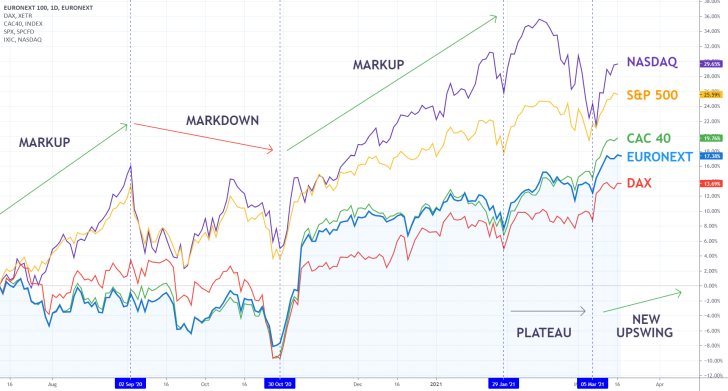
Suspending Vaccinations with the AstraZeneca Jab
At the height of the so-called 'third wave' of the pandemic across Europe, 16 European countries decided to temporarily suspend or otherwise limit the use of the AstraZeneca jab because of concerns of adverse side-effects. Case in point, fears of blood clots induced by the vaccine causing death. As an example, three death cases have been reported in Germany so far out of 1.6 million administered AZ doses.
The disparity in the numbers is so massive that, statistically speaking, it amounts to no evident correlation between the AstraZeneca product and a higher risk of death. But these basic deductions represent only the tip of the iceberg when it comes to questioning the rationale behind the decision to halt inoculations with the AZ jab. A number of medical agencies, including the European Medicines Agency (EMA), have stated on several occasions that there is no evidence to suggest any correlation of the above kind.
Press conference by @EMA_News Executive Director Emer Cooke on the investigation on COVID-19 vaccine AstraZeneca and thromboembolic events. https://t.co/G81yzlfNcX
— European Commission 🇪🇺 (@EU_Commission) March 16, 2021
But even in the absence of any scientific justification, many European governments decided still to halt the vaccination process. This sets a dangerous precedent that can misfire in a significant way.
Uncertainty Flourishes in the Absence of Reason
Given that this decision is seemingly unsupported by any actual evidence, much speculation naturally arises as to the true motifs behind it. On the one hand, it could be an expression of the same type of hypersensitivity that has fuelled the social justice movements of the last several years. The desire to secure equality of outcome for everyone, which in itself is an overt form of neo-Marxism, is blinding its supporters to the reality of the situation.
What is implied by it is that even if one individual is not benefited by the same equality of outcome, this means that the whole system is inherently at fault. This could potentially explain why governments would rather risk dozens of people dying from coronavirus rather than risk failing to secure such a perverse form of equality. The pursuit of political correctness essentially polarises opinions, which makes the proponents of PC scrutinise everything by its extremes.
On the other hand, some have hypothesised that the wave of AstraZeneca suspensions in Europe is a form of a retaliatory strike against the company, which is still struggling to meet its initially agreed-upon production quotas. These assertions are, of course, quite speculative in nature, but they expose the underlying issue. Without a clear and concise policy driven by reason, uncertainty and conspiracy theories will abound.
Political Disarrays Can Stave Off Recovery
Whatever the underlying causes, sooner or later, markets will perceive this form of unreasonable policymaking as an expression of political uncertainty. In the absence of a concise pandemic agenda, Europe jeopardises its own recovery, which is not especially robust, to begin with.
European stocks' ongoing rally, which is supported by global optimism, is threatened by the prospects of investors getting disillusioned with EU policymakers. This can then cause further commotion on the stock market, potentially driving stocks lower on renewed fears over uncertainty.

As can be seen on the daily chart above, the German DAX, the French CAC 40, and the Euronext Composite are all lagging behind the American S&P 500 and Nasdaq Composite. This trend was exacerbated recently at the beginning of the new upswing, seeing as how the climb of U.S. stocks is steeper than the one of their European counterparts.
The solid uptrend that is being observed on the Nasdaq and S&P 500 is partly owing to the comprehensive fiscal policy of Joe Biden and his cabinet, but also owing to the coherent vaccination policy of the new Administration in Washington.
What Europe needs to do is also pick a lane in order to navigate out of this pandemic. But even more importantly, this lane needs to be selected against the available evidence, even at the risk of upsetting some people.




















